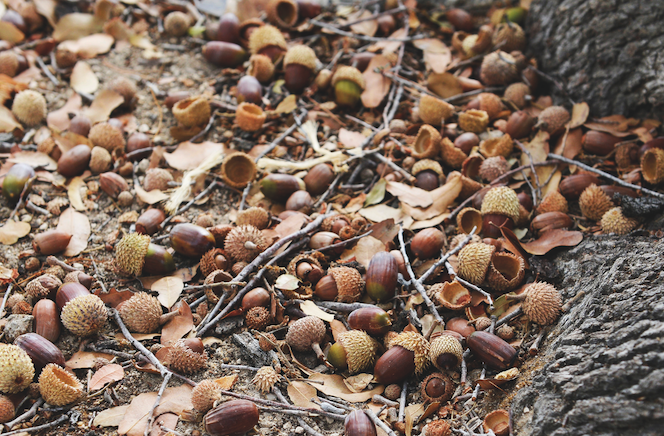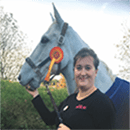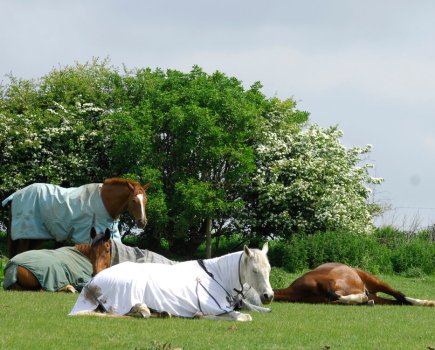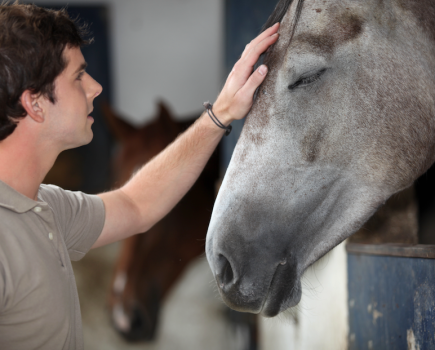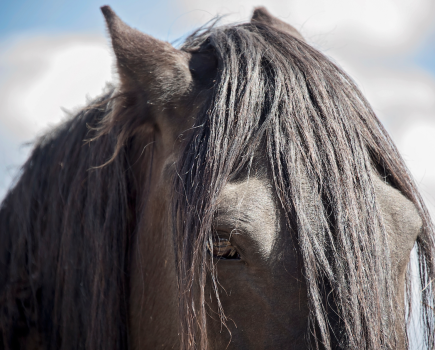Now is the time for horse owners to stay alert for acorn poisoning (toxicity), which can cause serious illness and even death in equines. The risk is highest when oak trees are dropping their acorns and, in the UK, that is during the autumn.
Seemingly harmless, acorns can pack a punch when it comes to toxicity in horses, and preventing yours from eating them is vital. Oak leaves and oak tree branches are also poisonous to horses. They both, like acorns themselves, contain gallic acid and tannic acid, toxic substances which can cause damage to the liver, kidneys and intestines, and seriously affect horse health.
Horse tolerance levels to acorns
Every horse has differing tolerances to acorns, which makes it hard to predict how a horse will react to them.
Eating a few acorns is unlikely to cause a problem, especially when the horses is also eating a suitable high fibre hay and grass diet.
Eating a lot, however, can be toxic.
When is acorn poisoning a risk?
Acorn poisoning is rare in horses, but toxicity can be a particular problem in the autumn for horses who graze near oak trees. This is because acorns typically fall between September and early November.
Preventing acorn toxicity in horses
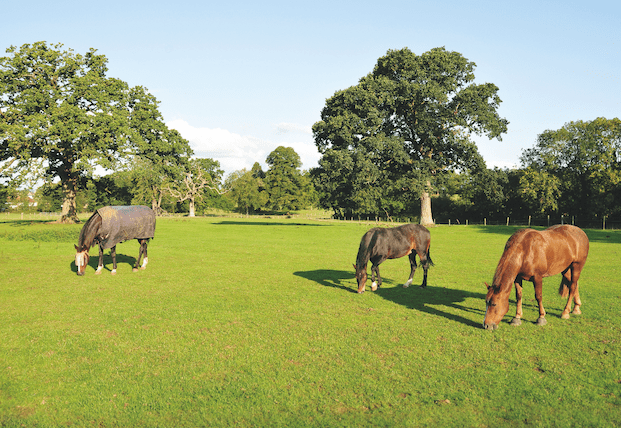
Fence off oak trees or remove horses from the field
It is important to prevent horses from eating oak leaves, branches or the acorns that fall from the tree. The safest way to do this is by removing horses from any field with oak trees inside or around the perimeter.
Alternatively, section off the oak trees so your horse can’t get close enough to eat what falls from them. Make sure they can’t lean over the fence or reach underneath it to get to the acorns.
You will need to check regularly for any leaves, branches or acorns that may have blown into the field.
Remember also that even if you can’t see an oak tree inside or around the edge of the field, if there are oaks nearby, anything they shed could blow into a field during windy weather. Vigilance is key.
Symptoms of acorn poisoning in horses
Signs of acorn toxicity include:
- Depression
- Loss of appetite
- Dehydration
- Mouth ulcers
- Colic
- Constipation
More serious illness can also develop, including diarrhoea, bloody urine and nervous system issues.
Treatment options
There are no specific antidotes for acorn toxins, so prevention is important.
Treatment involves treating the clinical signs an infected horses is displaying to minimise organ damage.
This can involve putting patients on intravenous fluid therapy to rehydrate them and support kidney function. Electrolytes may be administered, and in some cases antibiotics.
Severely ill equine patients may need to be hospitalised for emergency treatment.
How can pigs help?
Pigs love eating acorns — and they’re not dangerous for them to consume. That’s why, in the New Forest in Hampshire, pigs are released to eat the acorns and in turn protect the wild ponies and cattle from poisoning.
It’s an effective process that dates back to William the Conqueror, who founded the New Forest in 1079.
The 2024 Pannage season (which is sometimes also called ‘Common of Mast’) started on Monday 16 September, when up to 600 domestic pigs and piglets were released into the forest. They will remain at large until Friday 22 November 2024.
As well as acorns, the pigs will eat beechmast, chestnuts and other nuts.
An owner’s warning
Although acorns typically fall in autumn, it was earlier in the year that Jodie Paylor’s Welsh section A gelding Rocky became gravely ill with acorn poisoning.
He was taken to Pool House Equine Hospital in Lichfield with serious symptoms: explosive, liquid diarrhoea with bloody in it, colic-like symptoms, a very high heart rate (over 100 beats per minute) and dark urine. Test results confirmed toxicity.
“We tested for bacteria in the gut that might be causing the diarrhoea but they were negative, which pointed to something like acorns,” explains equine vet Guilia Rapezzano.
When Jodie went to check the pony’s field, she found acorn heads and a few mouldy acorns under an oak tree.
“With it being winter, there wasn’t a lot of grass in the field so he had obviously picked them out,” says Jodie.
Grave condition
At one stage, Rocky was so severely dehydrated and unwell that he couldn’t raise his head. He was put on a drip as part of his treatment and Jodie was warned that he might not make it through the night.
Against all the odds, Rocky pulled through. After a week of hospitalisation, he was discharged and continued with oral antibiotics and anti-inflammatory painkillers as well as a gut balancer at home.
“He continued his medication for another five days and we moved him out of the field with the oak tree, so we don’t have to worry about him eating the acorns,” adds Jodie. “He’s been fine ever since and we started riding him again two weeks later.
“We are careful he doesn’t have access to any acorns but other than that, he has made a full recovery and has no lasting effects.”
Images © Shutterstock
Related content
- Atypical myopathy: important vet advice for every horse owner
- Poisonous plants for horses: would you recognise these?
- Impactions and gassy colic explained
- Common causes of diarrhoea in horses and how to prevent it
- How to check a horse’s vital signs *VIDEO*

